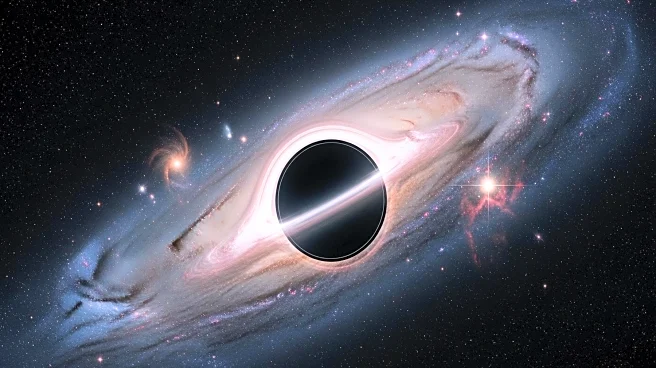What is the story about?
What's Happening?
Scientists have announced a 90% probability of observing a black hole explosion within the next ten years. This prediction focuses on primordial black holes, which are theoretical cosmic structures believed to have formed shortly after the universe's inception, rather than from the collapse of stars. These primordial black holes are thought to have dissipated over time, particularly the uncharged ones, due to evaporation. Current observatories face challenges in directly observing such explosions, making this prediction a significant scientific milestone.
Why It's Important?
The potential observation of a black hole explosion would be a groundbreaking event in astrophysics, providing evidence for the existence of primordial black holes. This discovery could enhance our understanding of the early universe and the fundamental processes that shaped it. The implications for science are vast, potentially leading to new theories and models about cosmic evolution. It would also stimulate technological advancements in observational equipment, as scientists strive to capture this rare phenomenon.
What's Next?
Scientists and observatories worldwide are likely to intensify their efforts to detect and study black hole explosions. This may involve developing more sensitive instruments and refining observational techniques. The scientific community will be closely monitoring any developments, and successful observation could lead to further research into the nature and behavior of primordial black holes. Collaboration among international space agencies and research institutions may increase as they work towards this common goal.
















